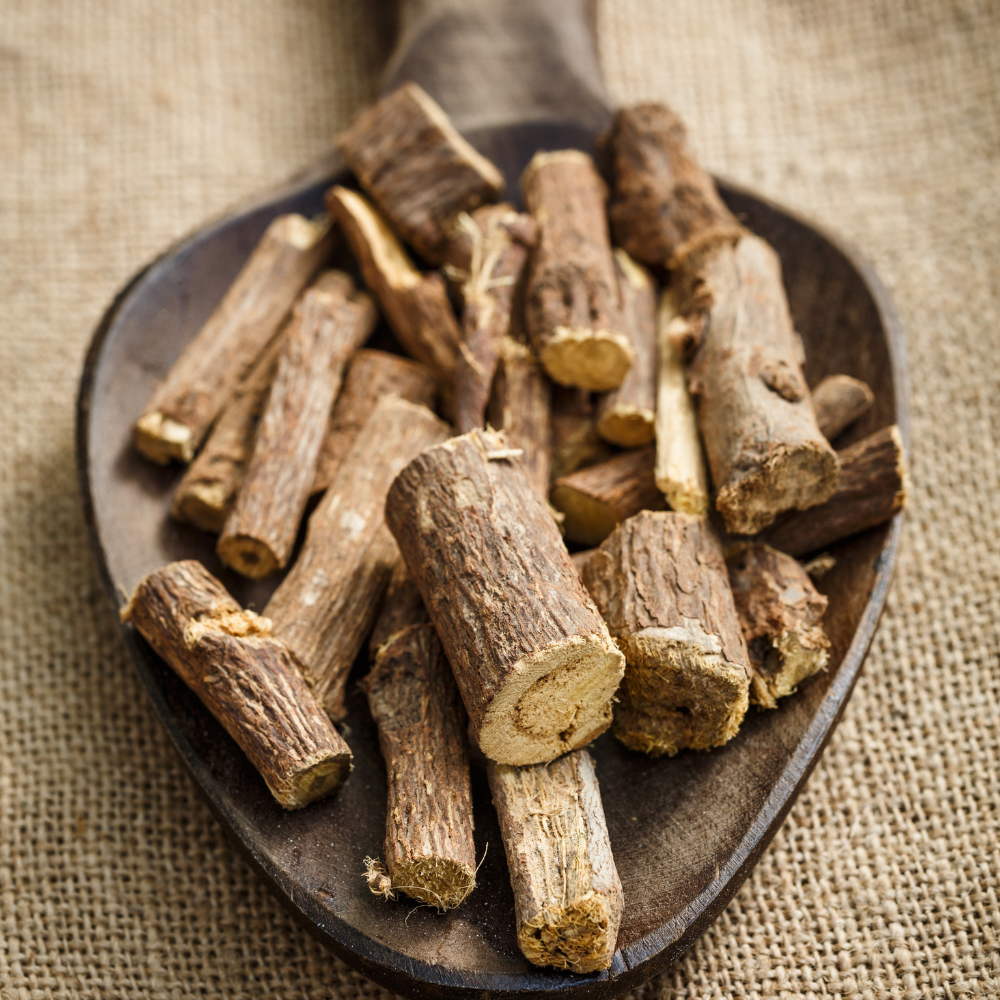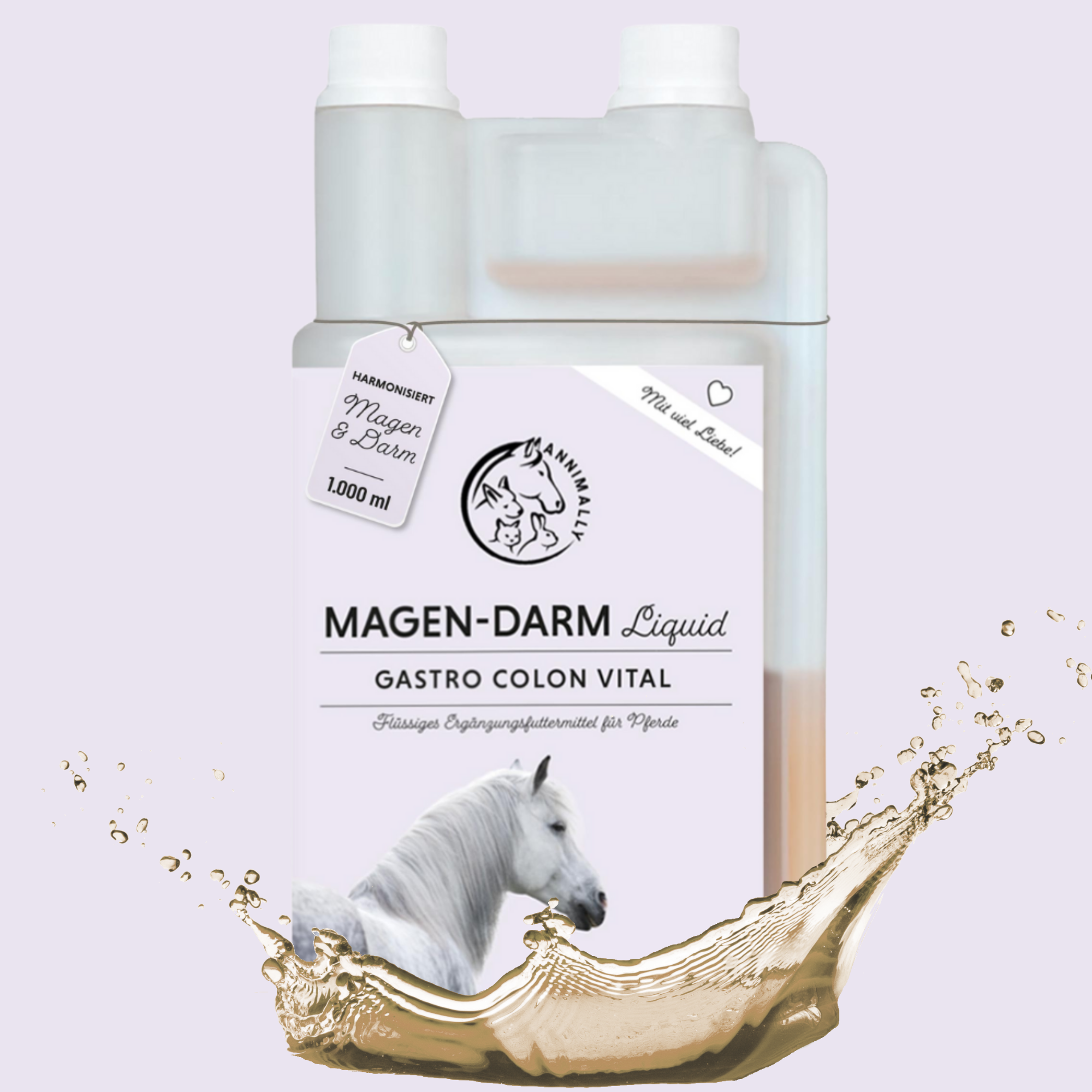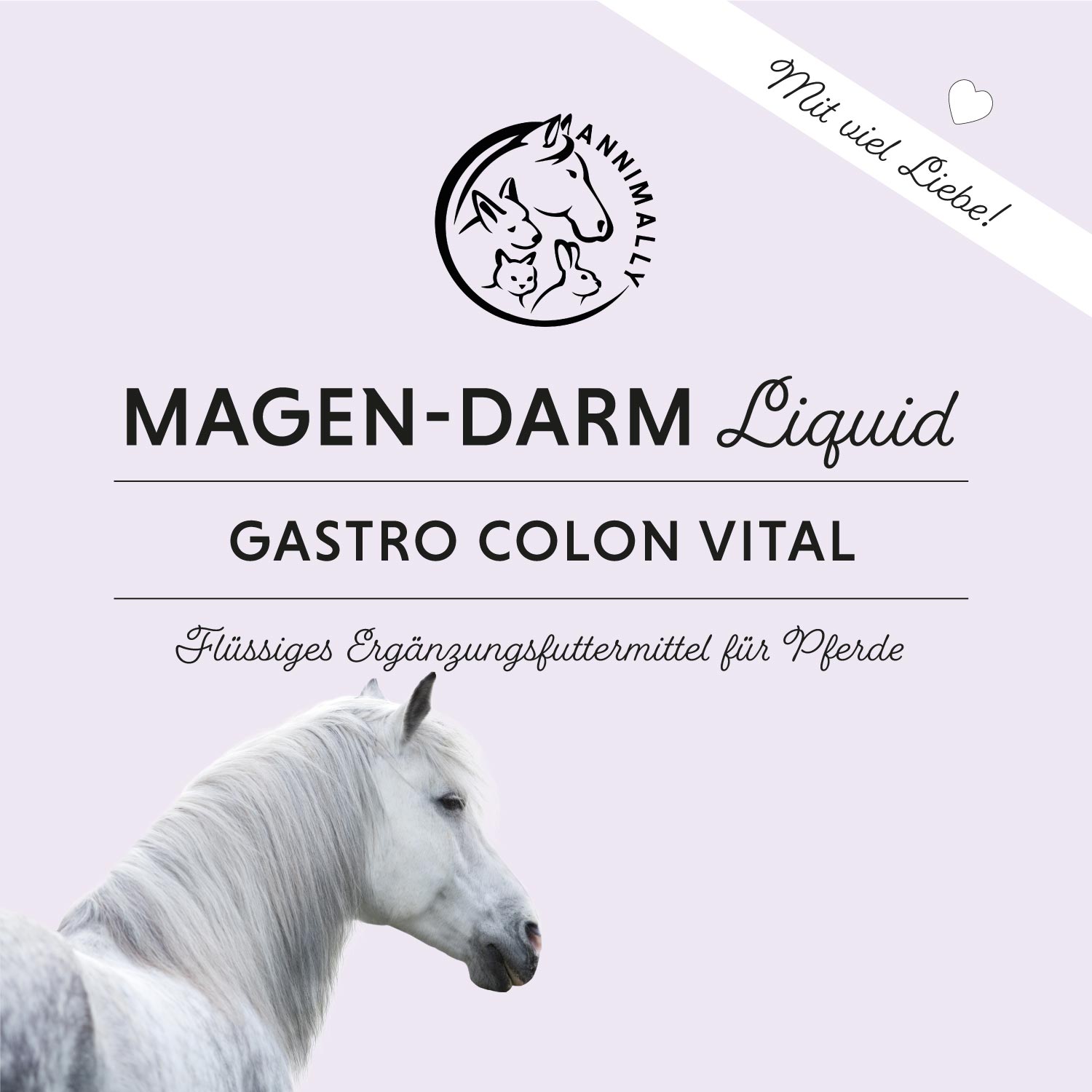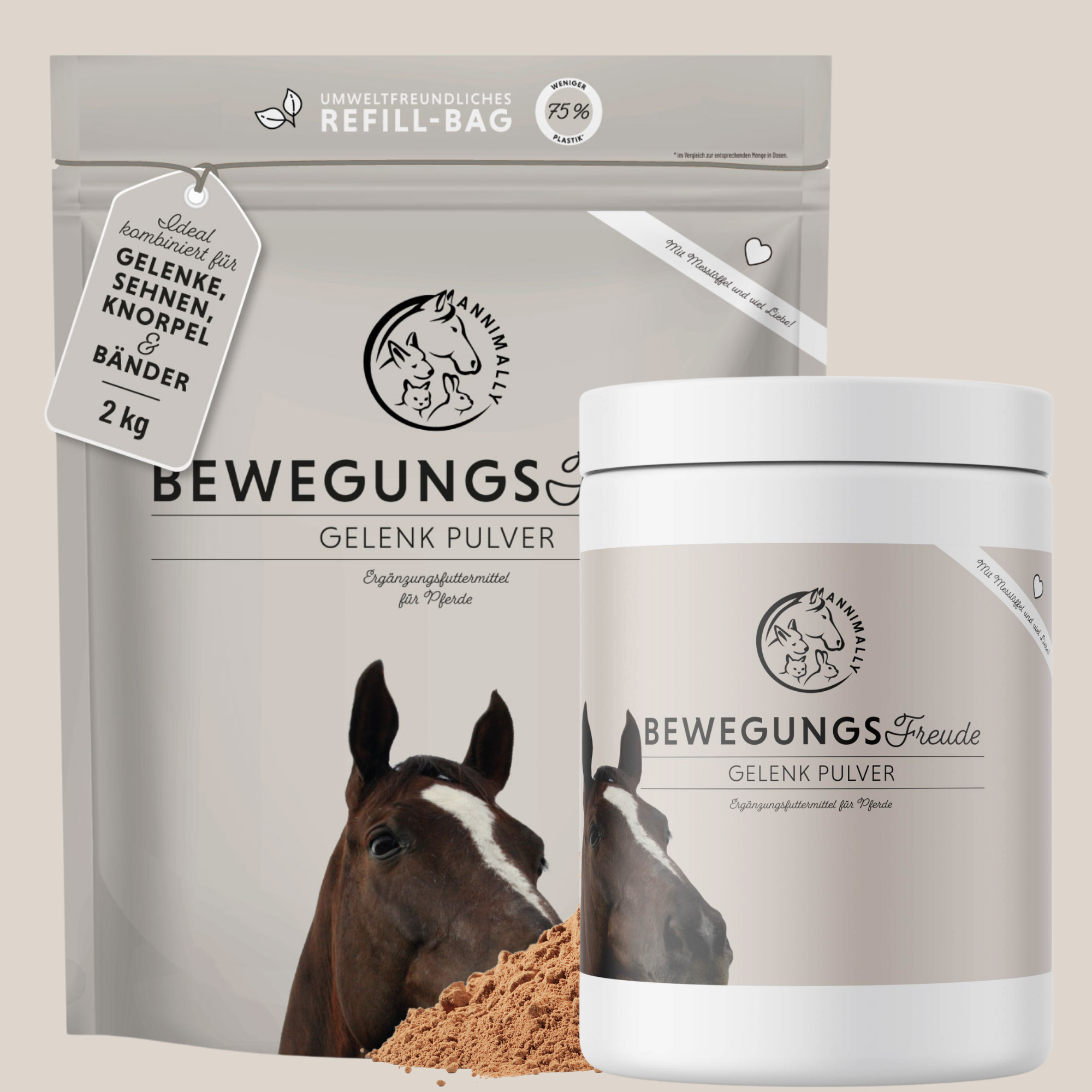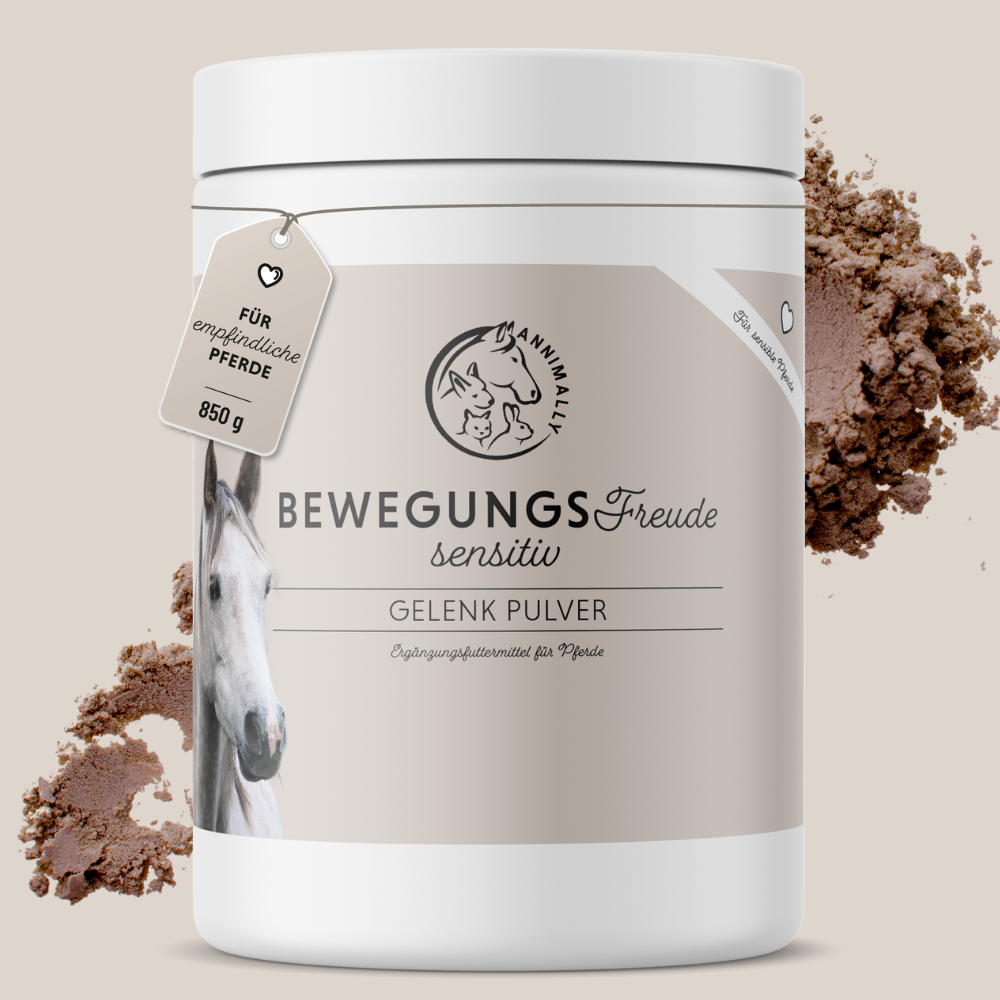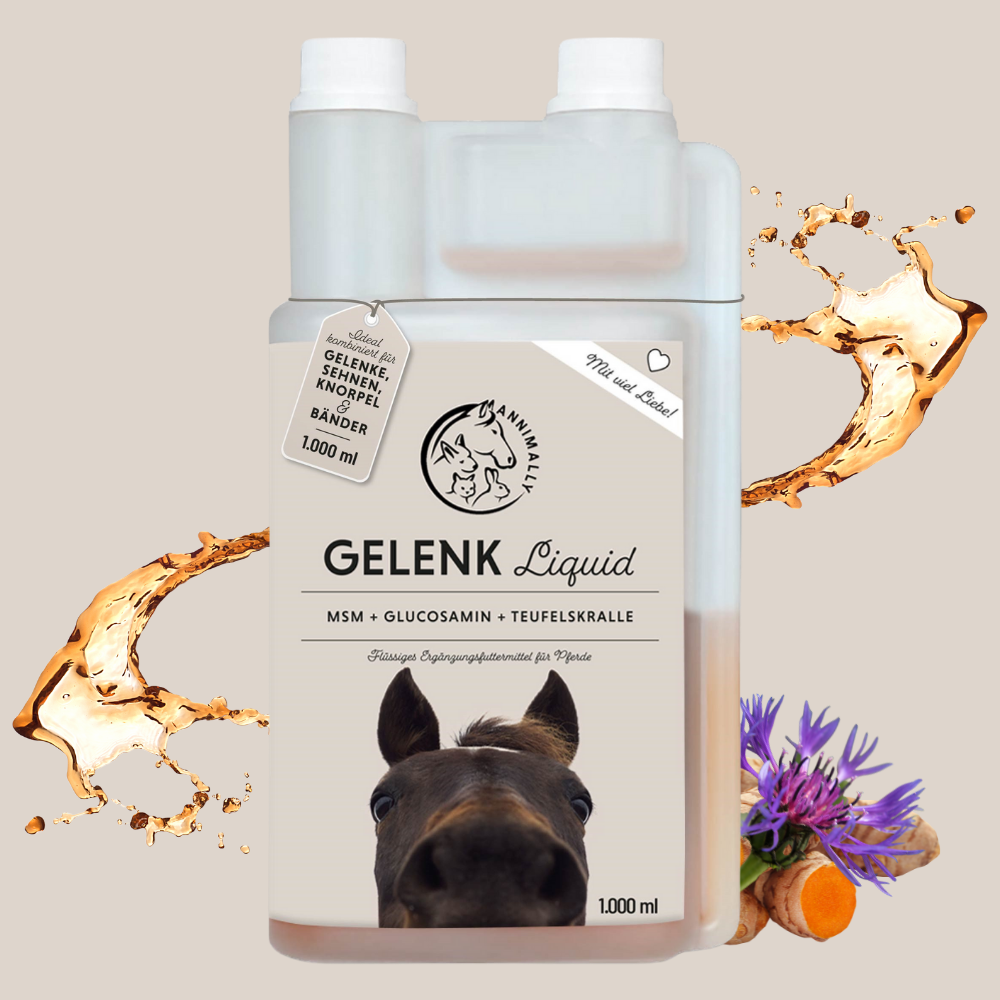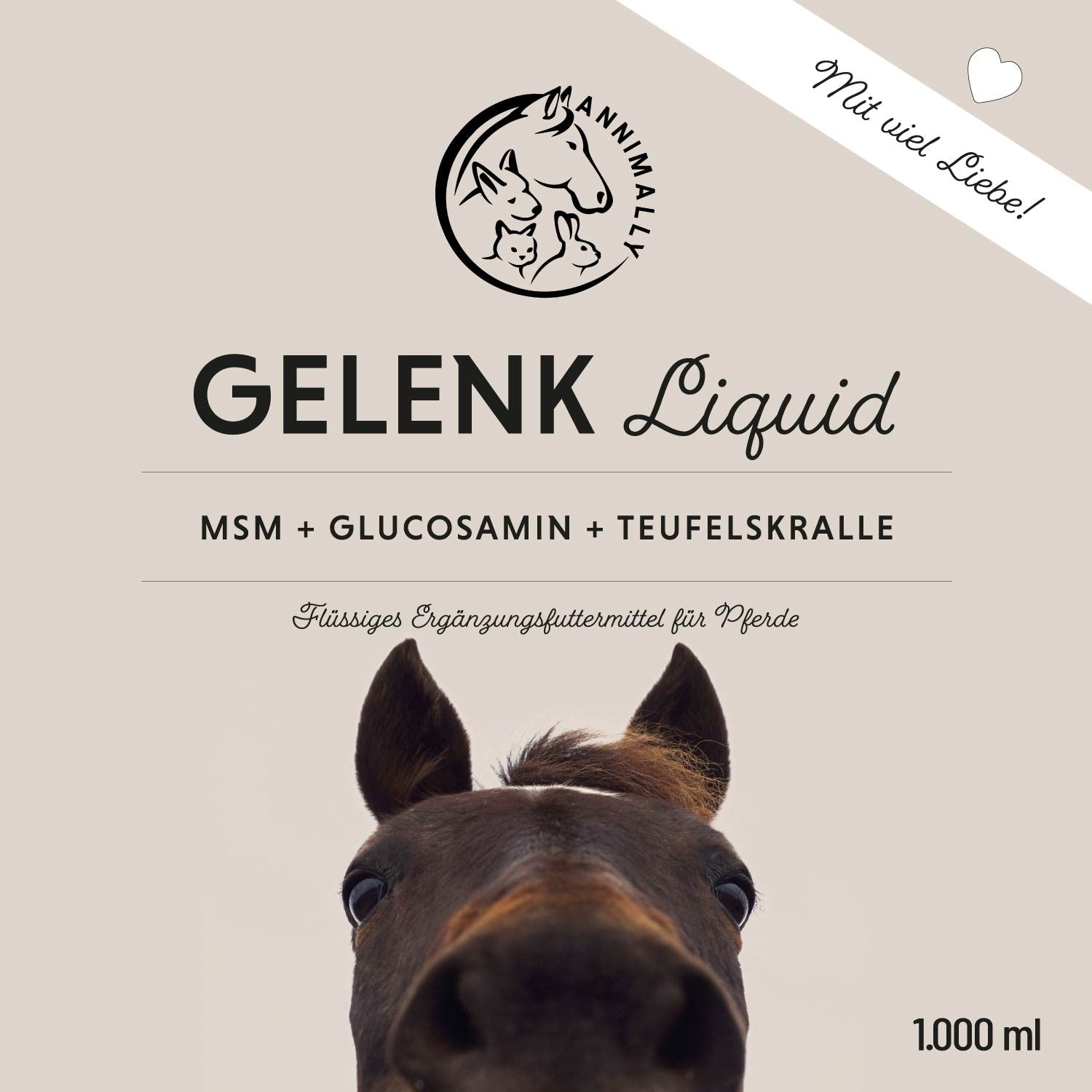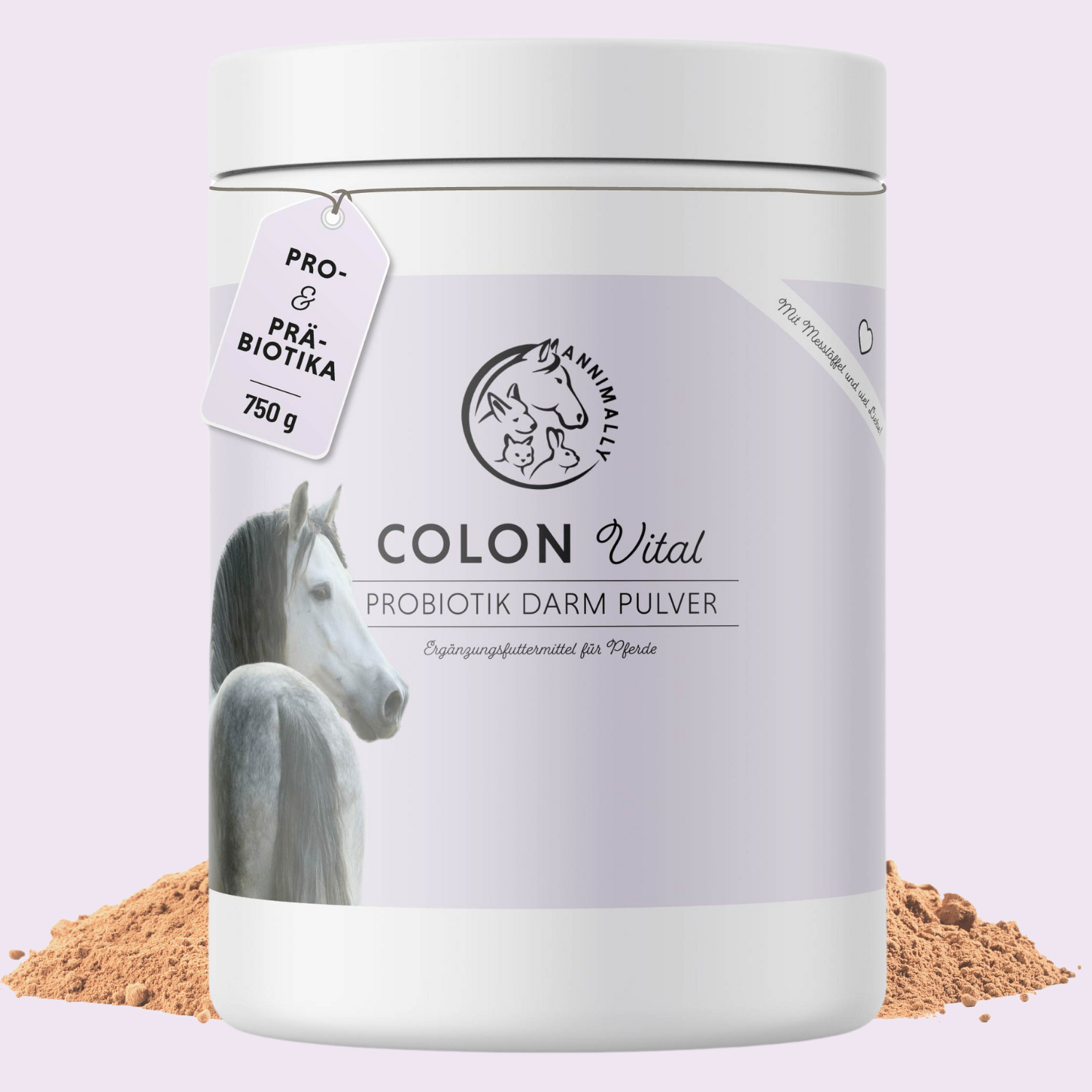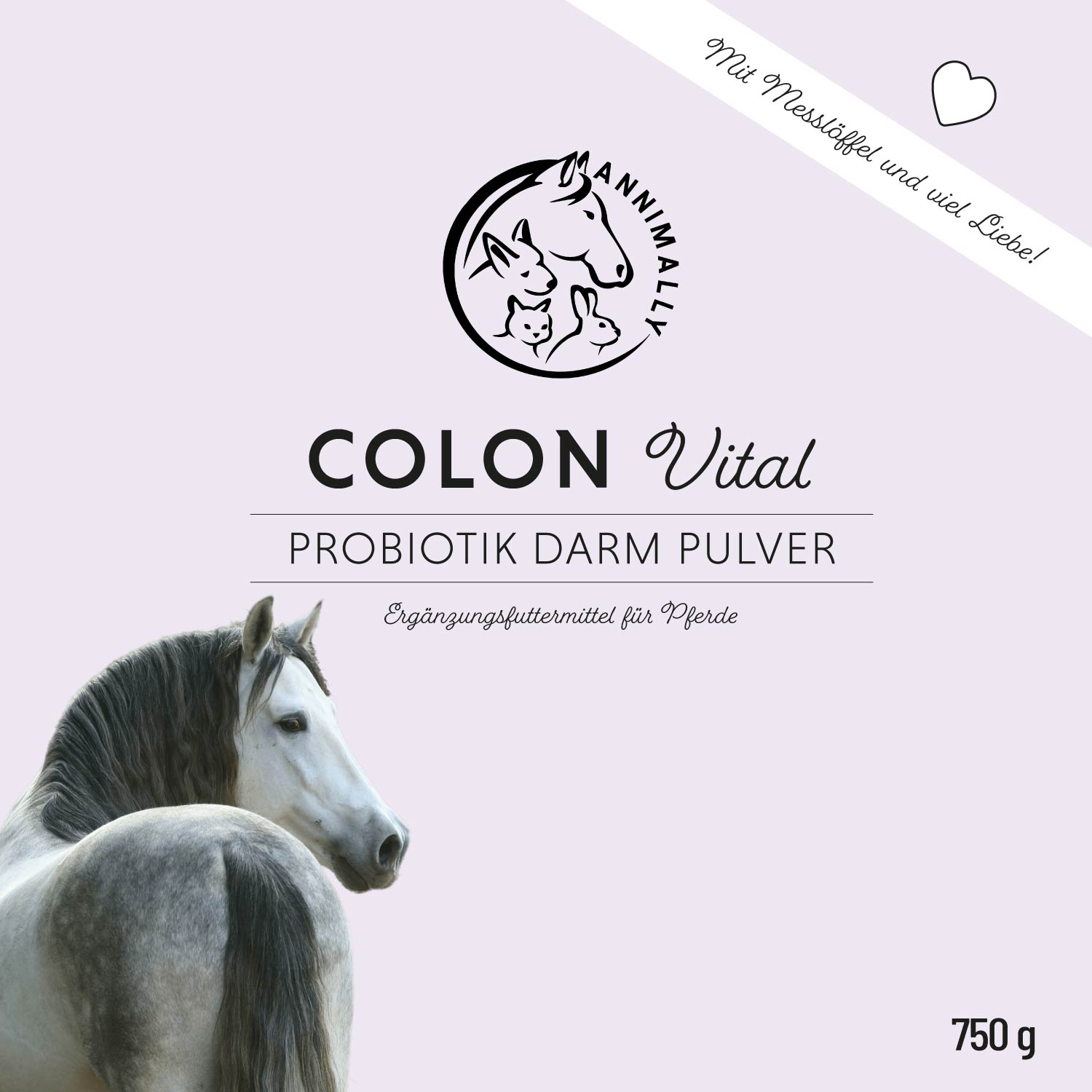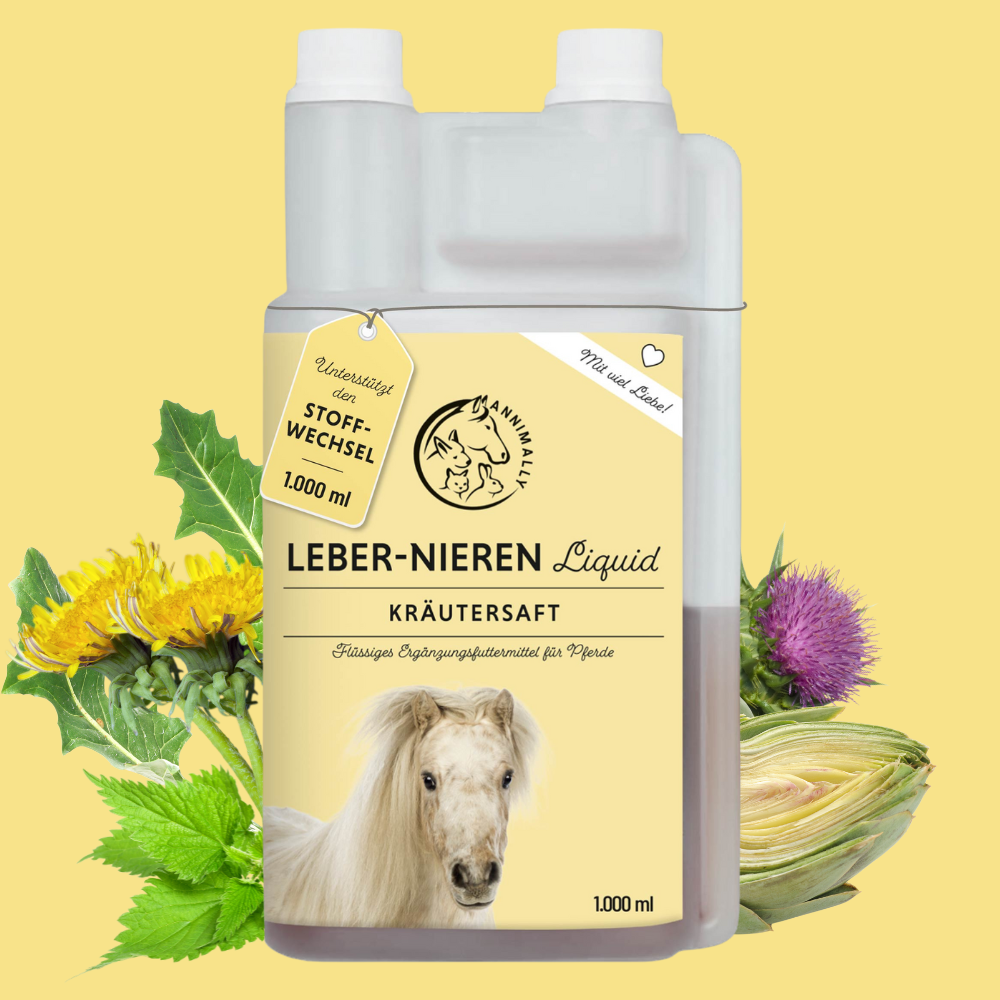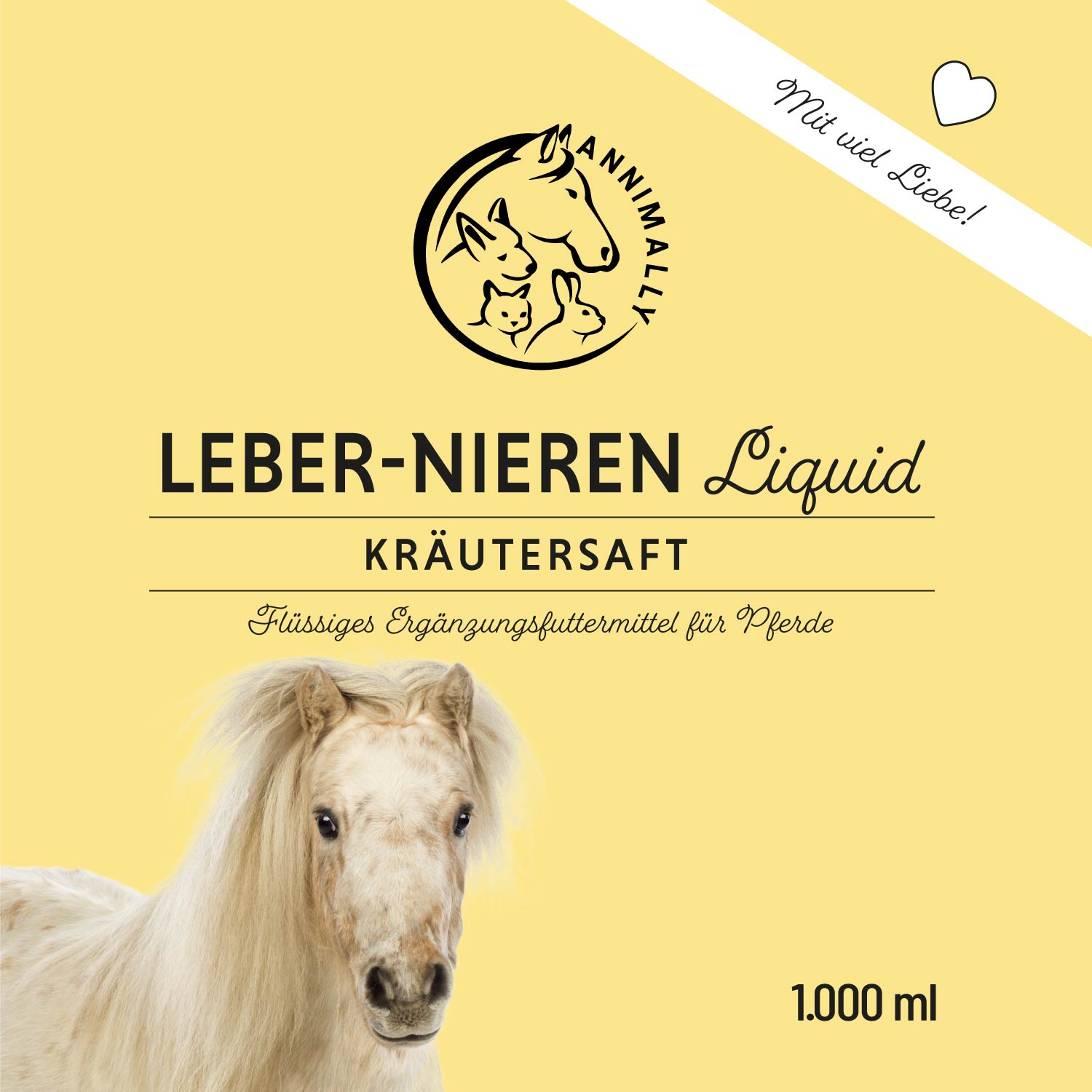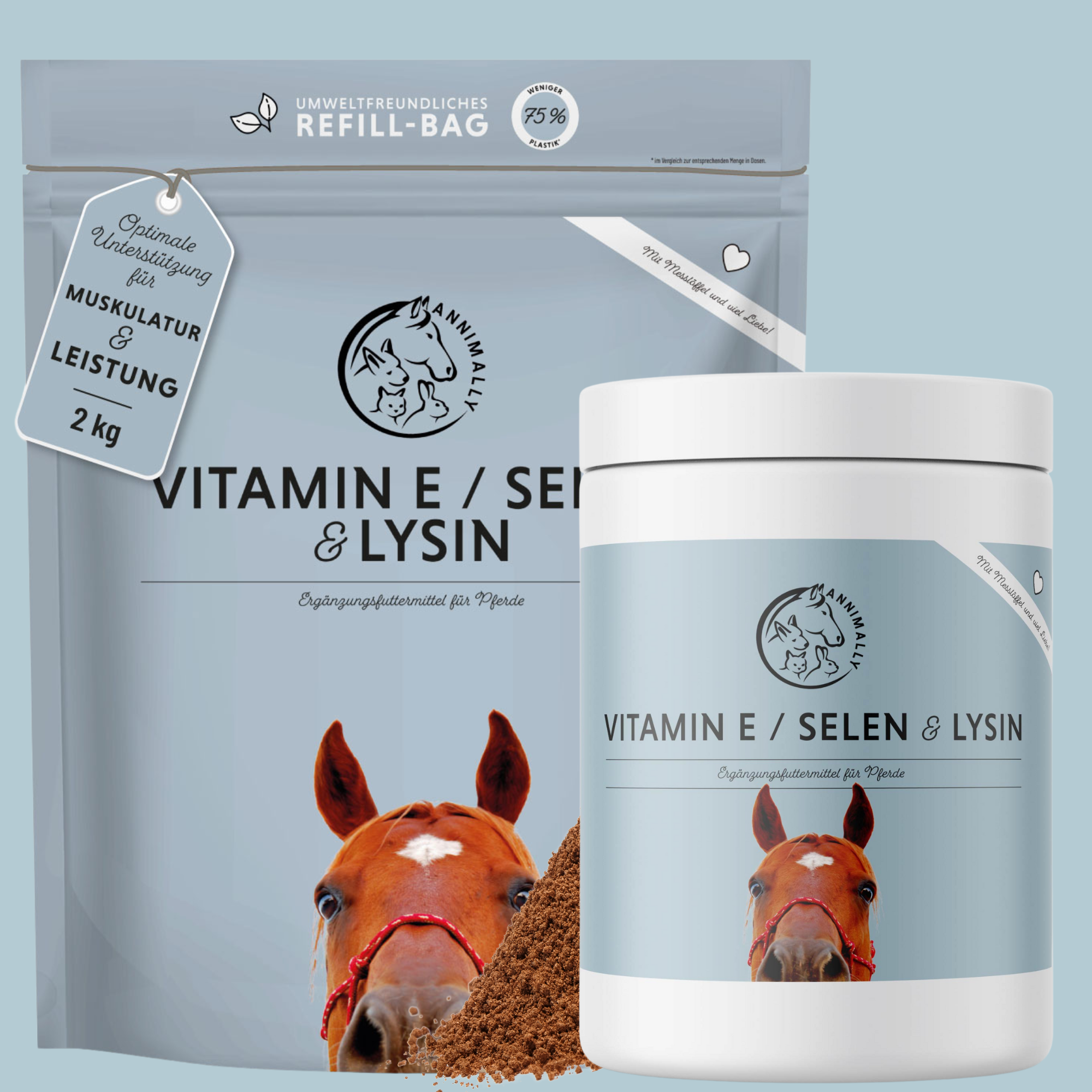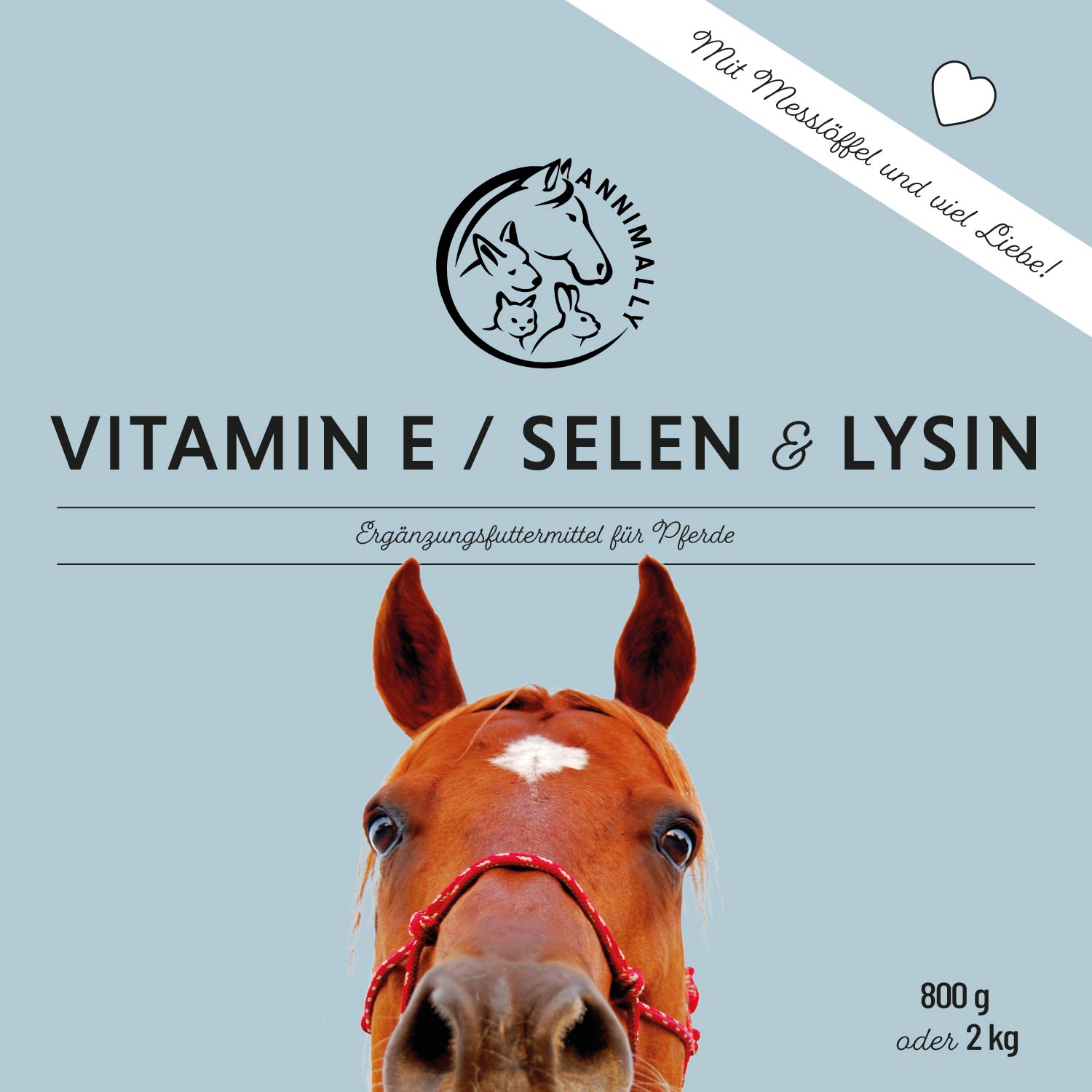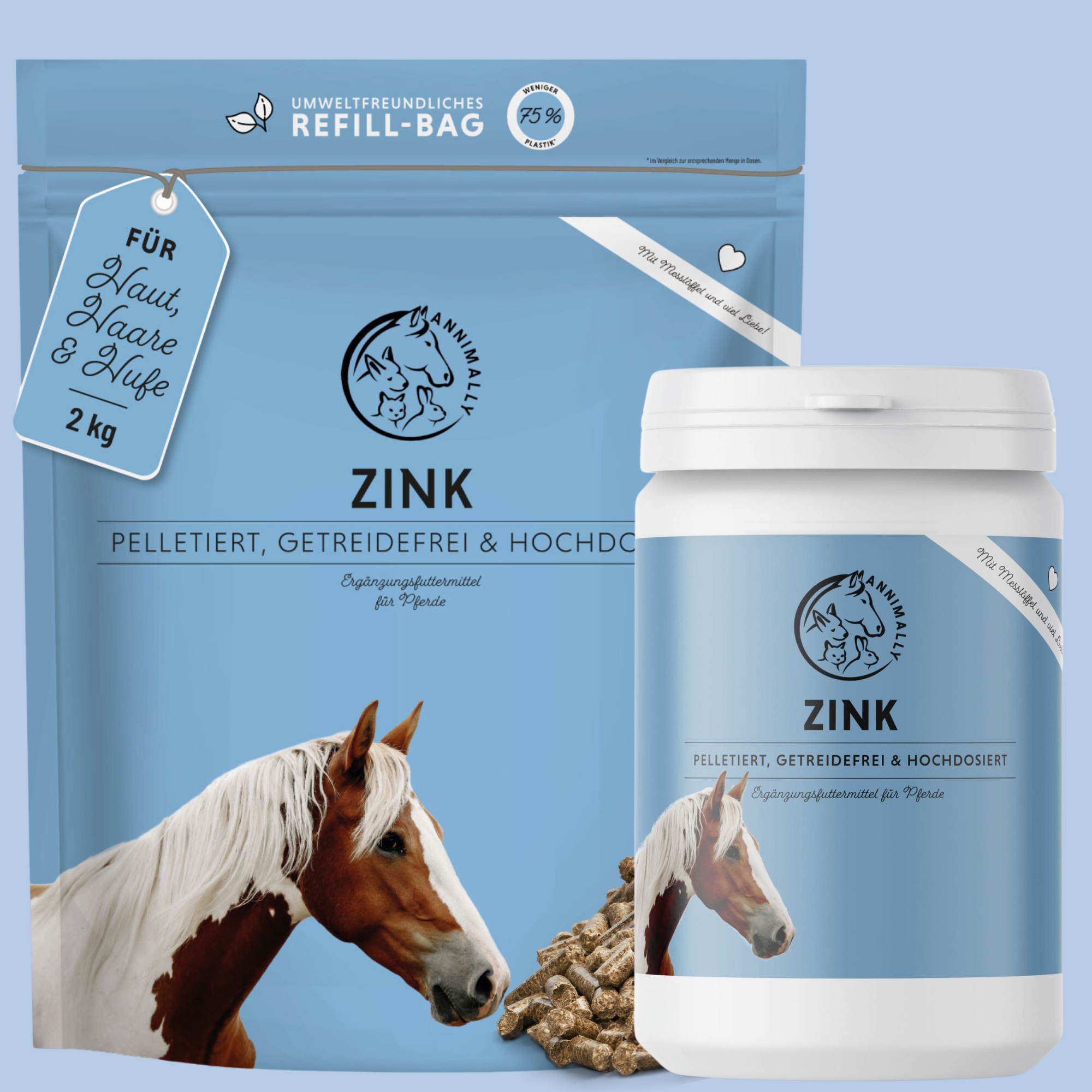Liquorice root for your horse: Natural support for the stomach, respiratory system and digestion
Licorice root (Glycyrrhiza glabra) has been a medicinal plant for centuries and is valued for its diverse effects. It is particularly valued in traditional horse feeding for its positive effects on the gastrointestinal tract, respiratory tract, and mucous membranes. Containing valuable plant substances such as glycyrrhizin, flavonoids, and vitamin C, the root can contribute to supporting your horse's health.
In this article, you will learn all about the function, application, and benefits of licorice root in horse feeding.
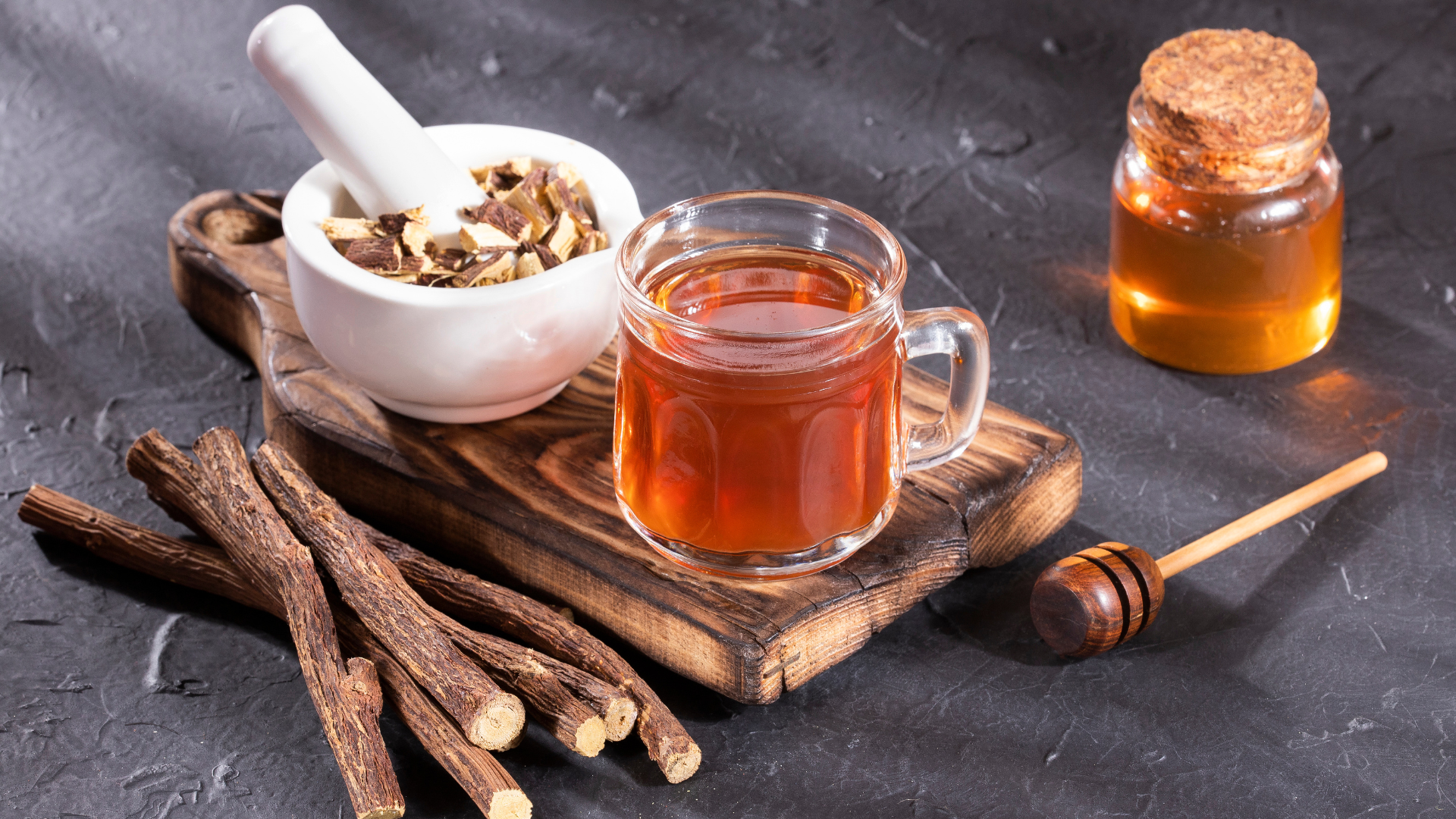
The effect of licorice root on horses
Licorice root is known for its numerous positive effects. It can help support your horse in a variety of ways:
1. Supporting your horse's stomach and digestion
Licorice root has mucosal-protective properties that can have a positive effect on the stomach lining. It helps regulate gastric acid production, which is beneficial for horses with sensitive gastrointestinal tracts.
The flavonoids it contains support healthy digestion and can help relieve stomach problems.
Due to its anti-inflammatory properties, it is often used to support stomach ulcers. Licorice root promotes the regeneration of the mucous membranes in the intestines and contributes to a balanced gastrointestinal system.
2. Support of the respiratory tract and bronchi
Licorice root has an expectorant effect and can help loosen trapped mucus in the bronchi. It is therefore often used as a natural remedy for coughs and other respiratory problems.
Due to its soothing effect on the mucous membranes, it helps to relieve irritation in the respiratory tract.
Especially in the cold season or when the hay is dusty, licorice root can be a valuable single feed to support the respiratory system.
3. Anti-inflammatory properties
The high content of glycyrrhizin in licorice root has strong anti-inflammatory properties and can help reduce inflammation in the gastrointestinal tract.
In horses with irritated mucous membranes, the root can help promote regeneration.
The anti-inflammatory properties make licorice root an important ingredient in natural horse feed.
Application and dosage of licorice root for horses
Liquorice root can be fed to your horse in various forms:
-
Dried root pieces or powder as a natural single feed.
-
Liquorice root juice , which can be easily mixed into the food.
-
A Decoction from the root , which is particularly suitable for horses with sensitive gastrointestinal tract.
The recommended amount is generally between 10-30 g per day. However, excessive intake should be avoided, as too much glycyrrhizin can affect electrolyte balance. It is recommended to feed licorice root in courses to avoid potential side effects.
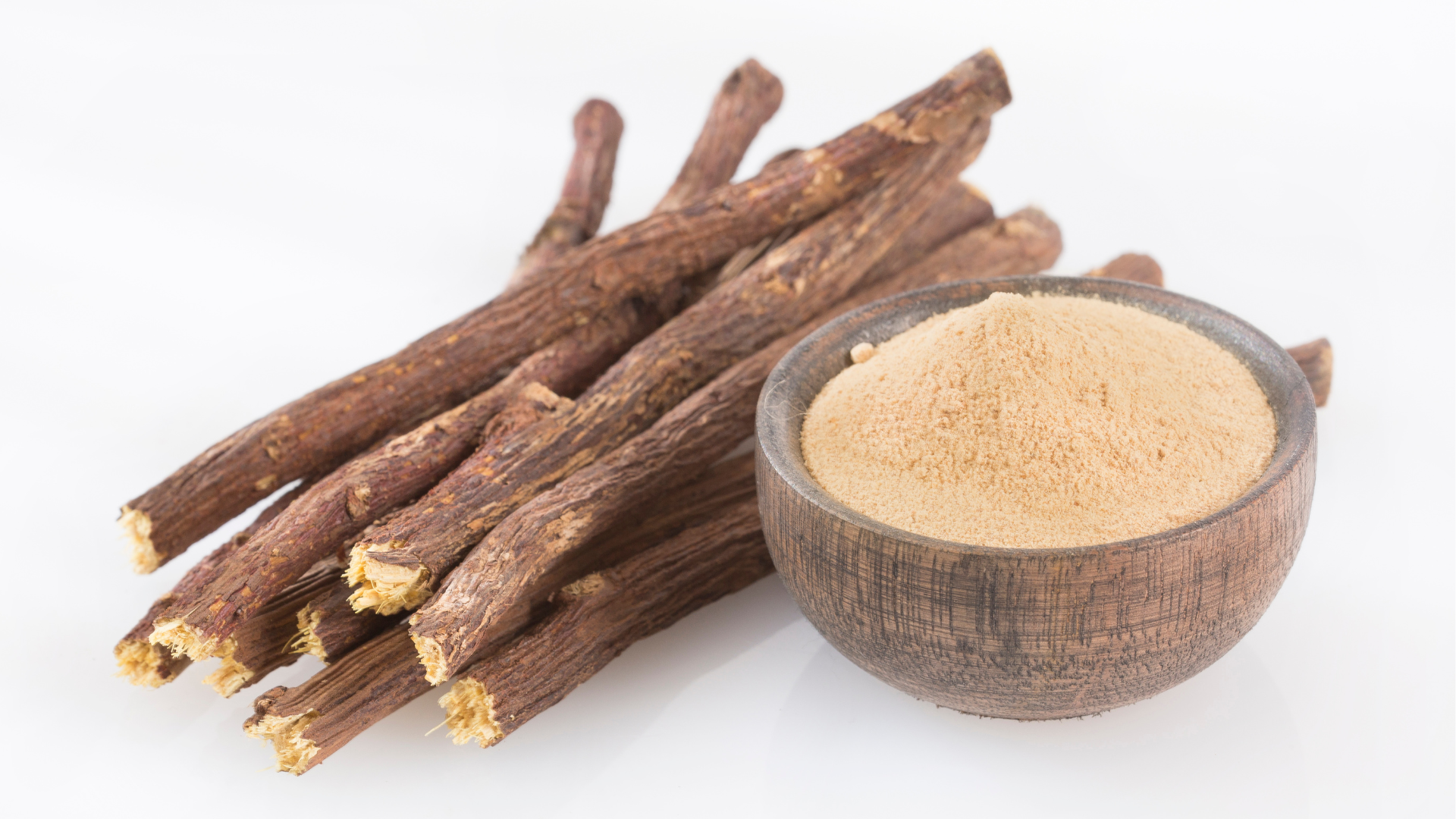
Why licorice root is a good choice for your horse
In addition to its health-promoting properties, licorice root has a natural sweetness, which is why it is also known as "licorice root." Its flavor is appreciated by many horses, so it is readily consumed. This natural sweetness can therefore be a tasty addition to a horse's daily diet.
Many natural horse feed products already contain licorice as a valuable ingredient. Due to its versatile uses, the root can be a valuable supplement for your horse's health – whether to support the gastrointestinal tract, the respiratory system, or to promote mucous membranes.
Conclusion
Licorice root (Glycyrrhiza glabra) is a proven medicinal plant that can provide natural support for your horse. Thanks to valuable ingredients such as glycyrrhizin, flavonoids, and vitamin C, it helps promote digestion, the mucous membranes, and the respiratory tract.
If you're looking for natural and proven support for your horse, licorice root is an excellent choice. Whether as a decoction, powder, or single feed, this root can support your horse's health in a gentle and effective way.




